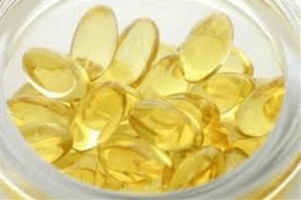Searching for the best antioxidant supplement can feel overwhelming with countless options lining store shelves and filling online marketplaces. As our understanding of oxidative stress and its impact on aging, disease, and overall wellness grows, so does our interest in fighting back with powerful antioxidants.
Whether you’re looking to support your skin health, boost immune function, or simply add an extra layer of protection to your wellness routine, finding the right antioxidant supplement matters.
In this comprehensive guide, we’ll explore the science behind antioxidants, examine the most effective ingredients to look for, and help you determine which might be the best antioxidant supplement for your specific health goals.

What Are Antioxidants and Why Are they Important?
Antioxidants are compounds that fight oxidative stress in the body by neutralizing free radicals—unstable molecules that can damage cells, proteins, and DNA. This oxidative damage is linked to:
- Premature aging
- Chronic inflammation
- Heart disease
- Cancer development
- Neurodegenerative disorders
- Weakened immune function
Our bodies produce some antioxidants naturally, but this production decreases with age. Additionally, environmental factors like pollution, UV radiation, and poor diet can increase free radical production, creating an imbalance that overwhelms our natural defenses.
Key Types of Antioxidants to Consider
When searching for the best antioxidant supplement, it’s important to understand the different types available and their unique benefits:
Vitamin C
- Immune system support
- Collagen production for skin health
- Wound healing promotion
- Neutralizes various free radicals
- Water-soluble and quickly used by the body
Vitamin C is perhaps the most well-known antioxidant and functions as a powerful free radical scavenger in aqueous environments of the body.
Vitamin E
- Fat-soluble protection for cell membranes
- Skin health support
- Complements vitamin C’s action
- Protects against lipid peroxidation
- Supports cardiovascular health
Vitamin E actually encompasses eight different compounds, with alpha-tocopherol being the most biologically active form in humans.
Coenzyme Q10 (CoQ10)
- Energy production in cells
- Heart health support
- Mitochondrial protection
- Naturally decreases with age
- Particularly beneficial for those taking statin medications
CoQ10 levels naturally decline as we age, making supplementation particularly beneficial for older adults.
Glutathione
- Often called the ‘master antioxidant’
- Produced naturally in the liver
- Recycles other antioxidants
- Detoxification support
- Immune system enhancement
Direct glutathione supplementation can be challenging due to digestive breakdown, so look for precursors like N-acetyl cysteine (NAC) or liposomal formulations.
Resveratrol
- Red wine and grape skins contain it.
- Longevity potential
- Cardiovascular benefits
- Anti-inflammatory properties
- Activates sirtuin genes
Resveratrol has gained significant attention for its potential longevity benefits and its role in the ‘French Paradox.’
Astaxanthin
- Powerful carotenoid from microalgae
- Exceptional free radical neutralizing capacity
- Skin protection from UV damage
- Eye health support
- Anti-inflammatory effects
Astaxanthin is considered one of the most potent antioxidants available, with capacity to neutralize multiple free radicals simultaneously.
Alpha-Lipoic Acid (ALA)
- Both water and fat-soluble
- Regenerates other antioxidants
- Blood sugar regulation support
- Nerve health benefits
- Mitochondrial function enhancement
ALA’s unique ability to work in both water and fat environments makes it particularly versatile.
How to Choose the Best Antioxidant Supplement
When evaluating options for the best antioxidant supplement, consider these important factors:
Bioavailability
The most potent antioxidant won’t help if your body can’t absorb and utilize it. Look for:
- Liposomal formulations
- Fat-soluble antioxidants taken with meals
- Combination products with complementary nutrients
- Proper dosing intervals
- Quality manufacturing processes
Dosage and Potency
- Research-backed effective doses
- Standardized extracts for botanical antioxidants
- Transparent labeling of active compounds
- Appropriate daily values for vitamins
- Sustainable dosing schedules
Quality Indicators
- Third-party testing certification
- GMP (Good Manufacturing Practices) compliance
- Transparency about sourcing
- Minimal fillers and additives
- Appropriate storage recommendations
Specific Health Goals
The best antioxidant supplement for you depends on your particular health concerns:
For Skin Health:
- Vitamin C
- Astaxanthin
- Vitamin E
- Glutathione
- Polyphenols
For Heart Health:
- CoQ10
- Resveratrol
- Vitamin E
- Quercetin
- Omega-3s with antioxidants
For Brain Health:
- Alpha-lipoic acid
- Curcumin
- Vitamin E
- Anthocyanins
- Acetyl-L-carnitine
For Athletic Performance:
- Vitamin C
- CoQ10
- Astaxanthin
- Quercetin
- Glutathione precursors

Top Antioxidant Supplement Options
Based on current research and clinical evidence, here are some of the most effective antioxidant supplements to consider:
For Complete Antioxidant Coverage
Look for comprehensive formulations containing multiple antioxidants that work synergistically. The best antioxidant supplement often combines several compounds rather than relying on a single ingredient.
- Complex formulations with complementary antioxidants
- Full-spectrum vitamin E (mixed tocopherols)
- Vitamin C with bioflavonoids
- Mineral cofactors like selenium and zinc
- Plant-based antioxidants from various sources
For Targeted Protection
- Astaxanthin for skin and athletic recovery
- CoQ10 for heart health and energy
- Resveratrol for longevity support
- N-acetyl cysteine for glutathione production
- Curcumin for inflammatory conditions
For Convenience and Compliance
- Once-daily comprehensive formulas
- Liposomal delivery systems
- Sustained-release technologies
- Pleasant-tasting options
- Travel-friendly packaging
Potential Side Effects and Considerations
While antioxidant supplements offer significant benefits, it’s important to be aware of potential concerns:
- Possible pro-oxidant effects at very high doses
- Interactions with medications
- Disruption of normal cellular signaling
- Quality and purity variations between brands
- Individual tolerance differences
Some research suggests that extremely high doses of certain antioxidants may actually promote oxidation in some circumstances, highlighting the importance of appropriate dosing.
Lifestyle Factors That Enhance Antioxidant Effectiveness
The best antioxidant supplement works even better when supported by healthy lifestyle practices:
- Regular physical activity
- Adequate hydration
- Stress management techniques
- Sufficient sleep
- Minimizing toxin exposure
Additionally, consuming a diet rich in colorful fruits and vegetables provides thousands of phytonutrients with antioxidant properties that work synergistically with supplements.
FAQs
What is the single most powerful antioxidant supplement?
Astaxanthin is frequently cited as among the most powerful antioxidant supplements available today. Research suggests it’s up to 6,000 times stronger than vitamin C and 550 times more potent than vitamin E at neutralizing certain types of free radicals. Its molecular structure allows it to span cell membranes, protecting both the water-soluble and fat-soluble portions of cells.
Additionally, unlike some antioxidants, astaxanthin doesn’t become pro-oxidative at higher doses, making it exceptionally versatile. However, the ‘best’ antioxidant depends on your specific health needs, as different compounds target different biological systems.
How long does it take for antioxidant supplements to work?
The timeframe for experiencing benefits from antioxidant supplements varies widely depending on several factors. For some effects, like improved energy from CoQ10, benefits may appear within 1-2 weeks. Skin health improvements from vitamins C, E, or astaxanthin typically require 4-8 weeks of consistent supplementation.
Long-term protective benefits for heart health, brain function, and cellular aging may take months or even years of regular use to fully manifest. The health challenge being addressed, quality of the supplement, dosage, individual absorption capability, and existing antioxidant status all influence how quickly results become noticeable.
Can you take too many antioxidant supplements?
Yes, it is possible to take excessive amounts of antioxidant supplements. While moderate doses support health, very high doses may disrupt normal cellular functions or create pro-oxidant effects. Certain antioxidants like vitamin E and beta-carotene have shown potential negative effects at high doses in some studies.
Additionally, high-dose antioxidants may interfere with certain medications or medical treatments, particularly some cancer therapies that rely on oxidative mechanisms. The key is balance—antioxidants work as a network, and overwhelming one pathway may disrupt others.
It’s advisable to stay within recommended dosages and consult healthcare providers, especially when taking multiple supplements.
Should I take antioxidant supplements in the morning or at night?
The optimal timing for antioxidant supplements depends on the specific compound. Fat-soluble antioxidants like vitamin E, CoQ10, and astaxanthin should be taken with meals containing healthy fats to maximize absorption.
Water-soluble antioxidants like vitamin C can be taken anytime but may be best split into morning and evening doses for maintained blood levels. Some people find energizing antioxidants like CoQ10 better suited for morning, while calming ones like melatonin (which has antioxidant properties) work better at night.
Certain antioxidants may compete for absorption, so spacing them throughout the day can improve effectiveness. Consider your lifestyle, medication schedule, and digestibility factors when determining your ideal timing.
Do antioxidant supplements reduce inflammation?
Yes, antioxidant supplements can help reduce inflammation, though the relationship is complex. Oxidative stress and inflammation are closely linked in a bidirectional relationship—each can trigger and amplify the other. By neutralizing free radicals that trigger inflammatory responses, antioxidants help break this cycle.
Certain antioxidants like curcumin, resveratrol, and omega-3 fatty acids have particularly strong anti-inflammatory properties beyond their antioxidant functions. For inflammatory conditions, combining multiple antioxidants with different mechanisms often provides the best results.
However, the anti-inflammatory benefits vary significantly between individuals and depend on the underlying causes of inflammation, making personalized approaches most effective.
Conclusion…
Finding the best antioxidant supplement requires understanding both the science of oxidative stress and your personal health priorities. While no single supplement works as a magic bullet, strategic supplementation with evidence-backed antioxidants can provide meaningful support to your body’s natural defense systems.
The most effective approach typically involves a combination of antioxidants that work through complementary mechanisms, addressing both water-soluble and fat-soluble environments within the body. Before beginning any supplementation regimen, it’s wise to consult with a healthcare provider, particularly if you have existing health conditions or take medications.
Ultimately, the best antioxidant supplement is one that aligns with your specific health goals, fits your lifestyle, and comes from a manufacturer committed to quality and scientific validation.



